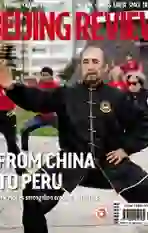Unfair Trade
2016-12-22ByLanXinzhen
By+Lan+Xinzhen
December 11, 2016 marks the 15th anniversary of Chinas accession to the World Trade Organization(WTO). In accordance with Article 15 of the Protocol on the Accession of the Peoples Republic of China, WTO members should stop the practice of using surrogate countries in anti-dumping claims against China. This is an international obligation that all WTO members are obligated to honor, and they are supposed to do so in good faith and in a timely manner.
However, as the day approaches, the EU has begun to show its lack of credibility. The European Commission released a communication document on promoting employment and economic growth in the bloc in October, calling on EU member states to support its new model for anti-dumping investigations. On November 9, the commission officially submitted a motion to the European Parliament and the Council of the European Union to modify the blocs anti-dumping legislation.
Under the proposed new model, the EU will use“market distortion” as a substitute for “non-market economy,” thereby extending the former practice.“Market distortion” will be measured by the influence of government policies, the distribution of state-owned enterprises and the extent to which financial institutions are independent.
This move by the EU, which is targeted at the expiring Article 15, is, in essence, tantamount to trade protectionism without a basis in WTO rules.
In order to enter the WTO 15 years ago, China forwent long-existing planned economy practices, began to transform itself toward a market economy and paid a huge price in so doing. For instance, large numbers of workers were laid off in the process of transforming Chinas state-owned enterprises into modern corporate entities. In addition, cheap agricultural products imported from foreign countries such as corn and soybeans led to a decline in the domestic cultivation of such crops and raised Chinas dependence on imports.
Since the WTO entry, China has strictly abided by the protocol. In order to adhere to WTO regulations and rules, it has annulled and amended a large number of laws and regulations and also established new ones. China had fulfilled all its commitments on tariff reductions by January 1, 2010 and has completely opened its markets except for those involving national security.
The WTO accession revved up Chinas economic and social integration with the rest of the world. Rapid changes have since swept its economy and society. The Chinese economy has become an inseparable part of the world economy and the bellwether in promoting global economic growth.
The protocol, comprising 18 articles, is the only legal instrument that defines Chinas WTO accession. On the whole, most WTO members abide by the protocol, but now questions have erupted concerning the pursuance of Article 15.
Article 15 is designed in nature to protect Western markets. This article includes the following clause: “The importing WTO member may use a methodology that is not based on a strict comparison with domestic prices or costs in China if the producers under investigation cannot clearly show that market economy conditions prevail in the industry producing the like product with regard to manufacture, production and sale of that product.” And, it goes on to stipulate that “in any event, the provisions shall expire 15 years after the date of accession.”
In the negotiation process, Western countries, knowing they could not compete with Chinas low labor costs, were afraid that Chinese companies would deal a severe blow to their markets. So, they proposed a protection period of five years, which was later extended to 15 years.
As a result, importing WTO members can compare the prices of products in China with those of countries at similar stages of economic development—??so-called“surrogate countries.” If Chinese products were comparatively underpriced, importing members could adopt anti-dumping measures.
China has honored the protocol, even though some of its sectors and businesses have been negatively affected. Chinas credibility has been widely recognized, and its market economy status has been acknowledged by more than 90 countries, including Australia, New Zealand, Singapore and Malaysia. However, its a pity that some of the worlds major economies such as the United States, the EU and Japan refuse to do likewise.
Trade protection goes against the interests of world economic development. China has upheld WTO rules. Is it not necessary for the EU to do so too? China has a clear and consistent stance on its commitment to Article 15: When the 15-year transitional period expires, anti-dumping measures based on comparisons with surrogate countries must be abolished. If the EU does not honor the rules, China will adopt measures to safeguard its legitimate rights within the WTO framework.
As one of the biggest economies and an important WTO member, the EU is obligated to take the lead in honoring WTO rules. It is not supposed to send out wrong message of trade protectionism by setting up the so-called “market distortion” criteria in defiance of WTO rules.
